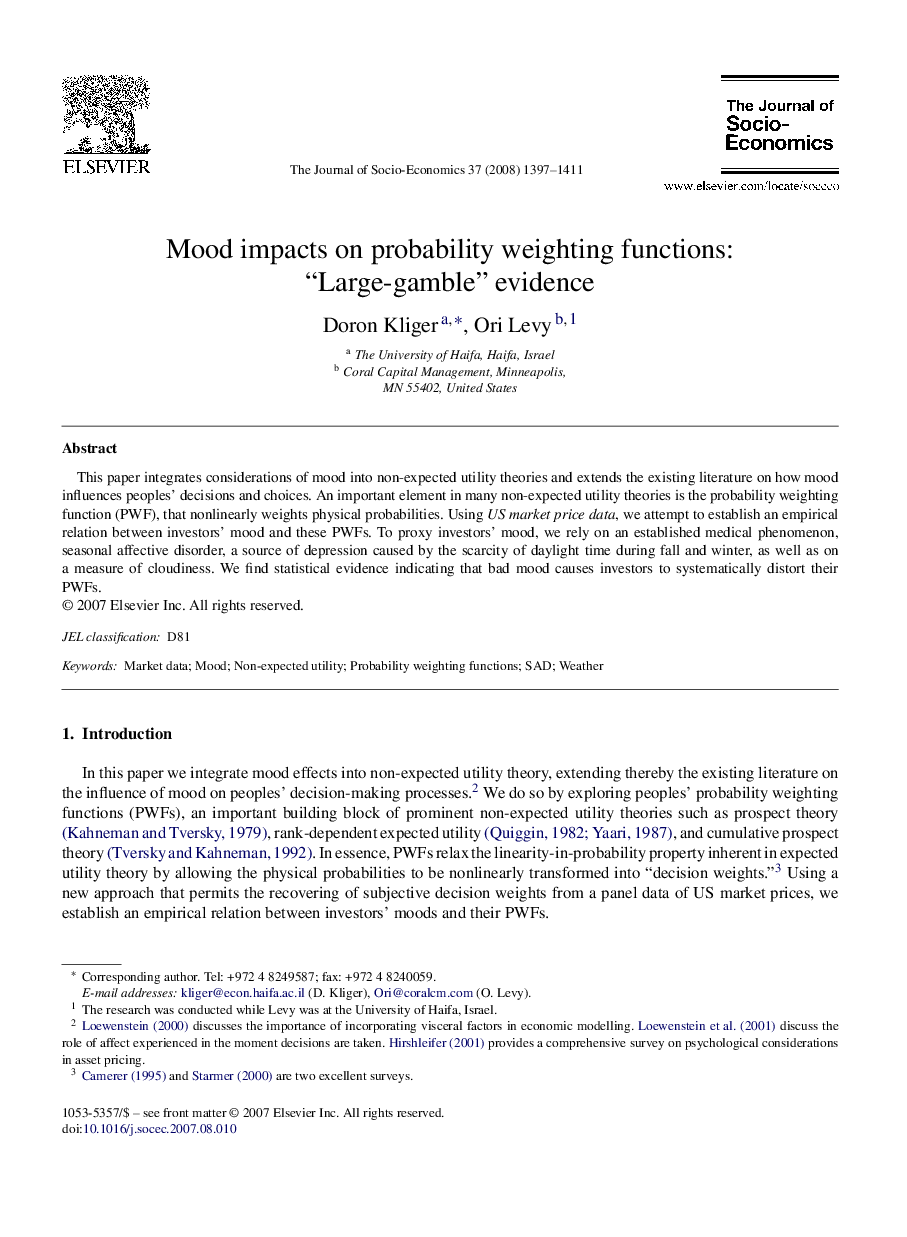| Article ID | Journal | Published Year | Pages | File Type |
|---|---|---|---|---|
| 971428 | The Journal of Socio-Economics | 2008 | 15 Pages |
This paper integrates considerations of mood into non-expected utility theories and extends the existing literature on how mood influences peoples’ decisions and choices. An important element in many non-expected utility theories is the probability weighting function (PWF), that nonlinearly weights physical probabilities. Using US market price data, we attempt to establish an empirical relation between investors’ mood and these PWFs. To proxy investors’ mood, we rely on an established medical phenomenon, seasonal affective disorder, a source of depression caused by the scarcity of daylight time during fall and winter, as well as on a measure of cloudiness. We find statistical evidence indicating that bad mood causes investors to systematically distort their PWFs.
